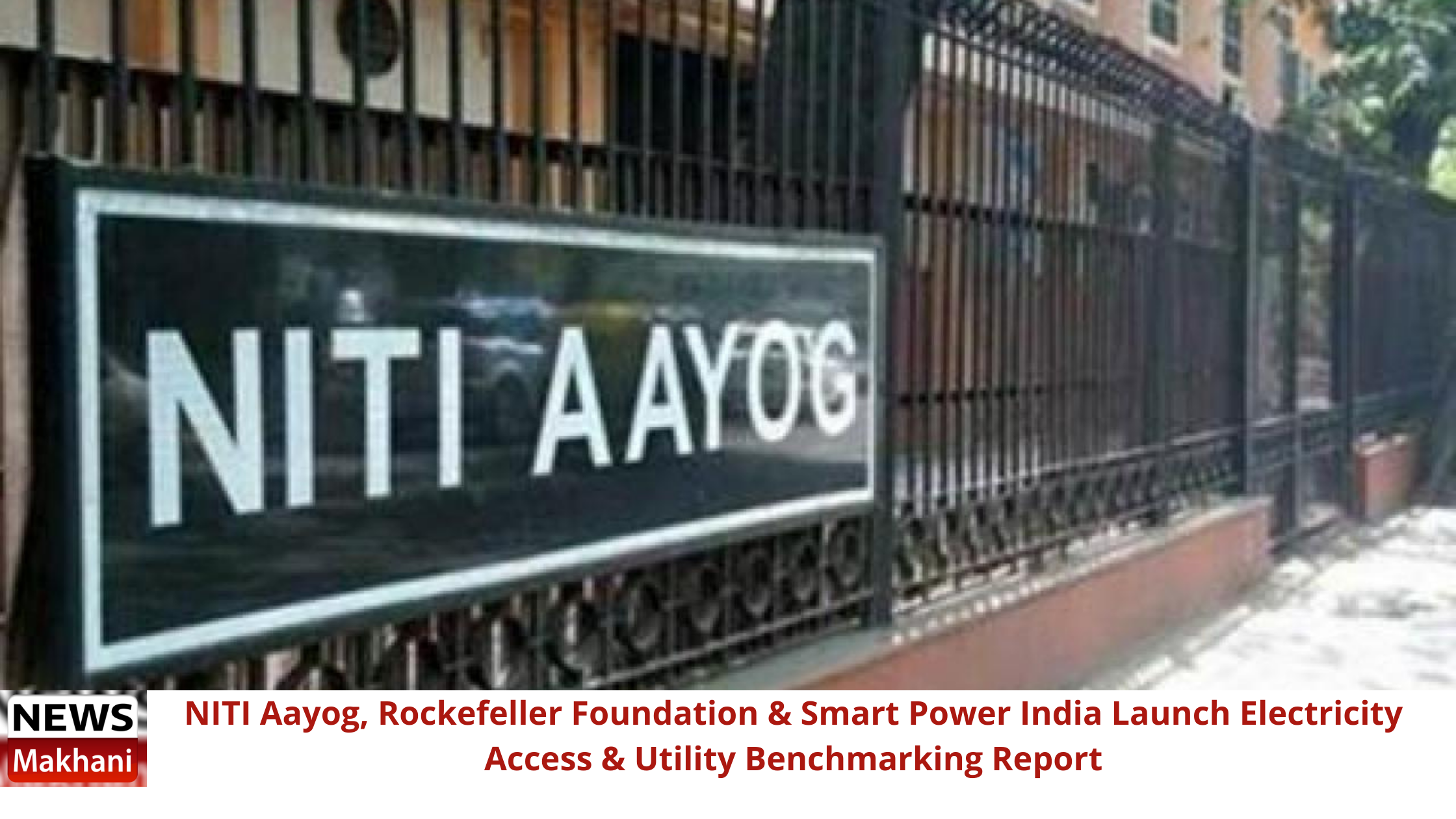NITI Aayog, Rockefeller Foundation & Smart Power India Launch Electricity Access & Utility Benchmarking Report
New Delhi, October 28
NITI Aayog, Ministry of Power, Rockefeller Foundation, and Smart Power India launched the ‘Electricity Access in India and Benchmarking Distribution Utilities’ report today.
Based on a primary survey conducted across 10 states––representing about 65% of the total rural population of India and with a sample size of more than 25,000, including households, commercial enterprises and institutions––the report assesses 25 distribution utilities.
Aimed at capturing insights from both the demand (electricity customers) as well as supply side (electricity distribution utilities), the report seeks to:
- Evaluate the status of electricity access in India across these states and distribution utilities along all dimensions that constitute meaningful access
- Benchmark utilities’ capacity to provide electricity access and identify the drivers of sustainable access
- Develop recommendations for enhancing sustainable electricity access
Key findings of the report:
- As much as 92% of customers reported the overall availability of electricity infrastructure within 50 metres of their premises; however, not all have connections, the primary reason being the distance of households from the nearest pole.
- Overall, 87% of the surveyed customers have access to grid-based electricity. The remaining 13% either use non-grid sources or don’t use any electricity at all.
- The hours of supply have improved significantly across the customer categories to nearly 17 hours per day.
- Nearly 85% of customers reported to have a metered electricity connection.
- Access to electricity is observed in 83% of household customers.
- A satisfaction index was created to assess the overall satisfaction level of customers with utility services. The study suggested that a total of 66% of those surveyed were satisfied––74% of customers in urban areas and 60% in rural areas.
During the launch, NITI Aayog Vice Chairman Rajiv Kumar said, ‘The report highlights the benefits of government-led schemes such as Pradhan Mantri Sahaj Bijli Har Ghar Yojana and Deen Dayal Upadhyaya Gram Jyoti Yojana, which have been well received in rural as well as urban areas.’ He advised Rockefeller foundation to focus on solving issues highlighted in the report in close partnership with the Ministry of Power, and highlighted three key areas: learnings from DBT schemes in Punjab; tariff simplification and rationalization; and best practices from high-performing Indian discoms.
He emphasized that the key recommendations provided in the report in the areas of policy and regulation, process improvement, infrastructure and capacity-building of utilities would be gainfully utilized for improving the power distribution sector.
He added, ‘Some of the recommendations––such as prioritizing the release of new connections for non-household customers; transfer of subsidies or other benefits directly into a customer’s account; enhanced technology-driven customer service; ensuring 100% metering of customers; segregation of feeder lines––are ongoing programmes of the government, but we would like the concerned ministry to expedite these to maximize the benefits.’
Adding that the report exemplifies India’s commitment to energy access by ensuring affordable and reliable electricity for all, Ministry of Power Additional Secretary Sanjay Malhotra said, ‘The Government of India has been working tirelessly to improve the health of public electricity distribution utilities. However, certain bottlenecks––such as regulated tariffs and inadequate infrastructure––continue to hinder efforts in providing 24×7 electricity to all.’
Smart Power India CEO Jaideep Mukherji added, ‘India’s achievements in enabling electricity connections underline its commitment to tackle the challenges of ensuring reliable, quality, 24X7 power supply to all customers connected to the grid.’
The report underlines some best practices adopted by the better-performing electricity distribution utilities in India and provides key recommendations to enhance sustainable electricity access. The data from the survey provides evidence that the infrastructure of providing electricity across sectors has improved over time. It also shows that reforms undertaken by the Government have been appreciated by the stakeholders.

 हिंदी
हिंदी






